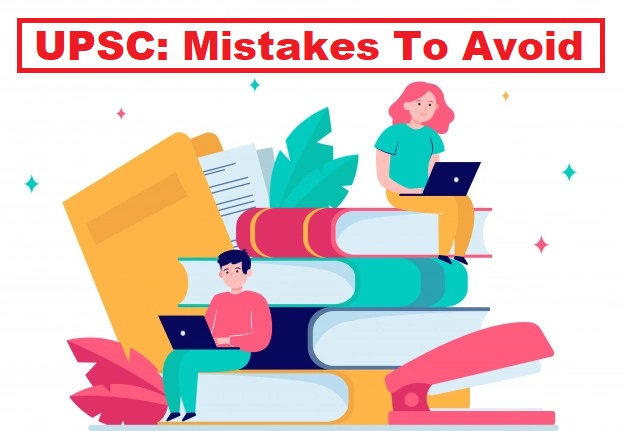The UPSC Civil Services
Examination stands as one of India's most prestigious and demanding competitive
tests. With a multitude of candidates vying for a select number of esteemed
positions, the journey to triumph is laden with challenges and stumbling
blocks. The initial stride on this rigorous trajectory is the UPSC Prelims, a
two-tier assessment comprising the General Studies (GS) paper and the Civil
Services Aptitude Test (CSAT). Within the confines of this article, we shall
delve into the common mistakes made by
aspirants during the UPSC Prelims and offer invaluable guidance on how to avoid
common mistakes in UPSC
1. Limited Grasp of the Comprehensive Syllabus: Among the core
causes for candidates stumbling in the UPSC Prelims is their shallow
familiarity with the syllabus. The expanse of the UPSC syllabus encompasses a
myriad of subjects—History, Geography, Polity, Economy, Science, and more.
Aspirants often err by concentrating solely on a handful of subjects while
neglecting others. To circumvent this pitfall, invest time in a meticulous
comprehension of the syllabus. Ensure comprehensive coverage of every subject
and topic stipulated.
2. Disregarding Current Affairs: Contemporary affairs play a
pivotal role in the UPSC Prelims. Often, candidates immerse themselves deeply
in static subjects, inadvertently overlooking recent occurrences and
advancements. The General Studies paper is structured to assess knowledge spanning
historical and contemporary domains. To address this, inculcate a habit of
consistent perusal of newspapers, periodicals, and reliable online sources to
stay abreast of current events. Dedicate specific time slots in your study
regimen for this purpose.
3. Underestimating the Value of Previous Year Question Papers:
Previous year question papers hold a trove of insights into the exam's trends
and patterns. At times, candidates undermine the significance of solving these
papers. By dissecting questions from previous years, you can discern recurring
themes, topics with greater weightage, and the overarching structure of the
exam. This practice can substantially elevate your preparation strategy.
4. Insufficient Revision: Mere acquaintance with study material is
inadequate for excelling in the UPSC Prelims. Candidates frequently falter by
neglecting periodic revisions. Given the sheer volume of information,
consistent revision is imperative for the retention and fortification of your
learning. Devising a revision timetable that facilitates regular re-engagement
with previously covered topics is indispensable.
5. Overindulgence in Rote Learning: The UPSC Prelims does not
evaluate rote memorization but rather a comprehensive grasp of concepts. Many
aspirants succumb to the allure of memorizing information devoid of underlying
comprehension. This approach proves counterproductive, as the exam frequently
evaluates the application of knowledge over mere recollection. Prioritize
understanding core concepts, interconnecting ideas, and their application
across various scenarios.
6. Neglecting Mock Tests and Practice: Mock tests are an integral
facet of UPSC preparation. On occasion, candidates relegate practice and mock
tests to the eleventh hour. Mock tests emulate the exam environment, aiding in
time management, precision enhancement, and assessment of your preparation
level. Regular participation in mock tests serves to measure progress and
pinpoint areas necessitating improvement.
7. Insufficient Time Management: Adequate time management is
paramount during the UPSC Prelims. Candidates might expend an excessive amount
of time on specific questions, leaving them with a dearth of time for the
remainder of the paper. Crafting a strategy that allocates time for each
section and question is vital. Should uncertainty surround a particular
question, it is prudent to move forward and revisit it if time permits.
In summation, the UPSC Prelims
mandate a holistic and disciplined approach. Steering clear of how to avoid
common mistakes in UPSC can drastically augment your prospects of triumph.
Recall that success in this examination hinges not solely on intelligence, but
on unwavering diligence, astute study methodologies, and profound
assimilation of subjects. Maintain your focus, perseverance, and a sanguine
disposition throughout your preparation odyssey. Best of luck!

